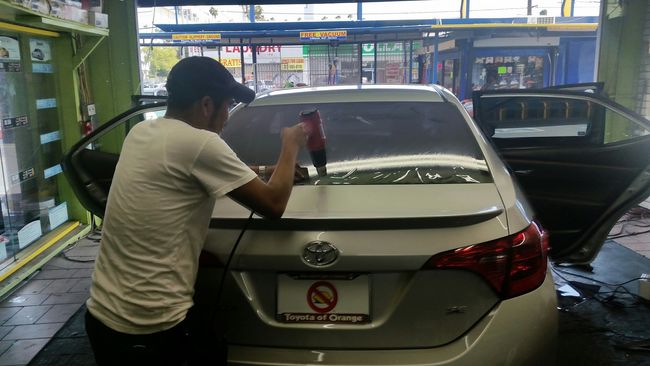
More drivers are tinting their windows as the weather is only getting hotter for the rest of the summer. That is because tinting not only blocks off UV and heat, but it also protects their privacy.
“We’re getting about 17 to 18 more customers tinting their windows as the weather is getting hotter,” said L.A. Koreatown-based Sam’s Tint Gallery owner Antonio Seo.
Tinting generally takes anywhere from an hour and a half if done by one person, but only 30 to 40 minutes if two people work on one car at the same time. Five sheets of dyed film, regardless of the size of the windows in one car costs about $120 on average for regular cars and $140 for SUVs. Obviously, films with more features including heat protection and others cost a bit more.
However, drivers who tint their cars must be mindful of the traffic laws. California traffic laws prohibit vehicles with excessively dark front and side windows as it could affect the drivers’ vision, so drivers commonly tint back and rear seat windows only.
Drivers who would still like to tint their front windows are allowed by law to only use films that have at least 70 percent visible light transmittance (VLT). There is no VLT limit for rear seat and back windows. Drivers who violate the law either have to pay a fine or go to the court.
“Tinted windows that violate the law warrants a ticket called correctable violation and it costs $25,” said a Vija Driving School employee. “Otherwise, the fine could blow up to over $200.”
However, removing the films is not as simple as putting it on. Forcing it to come off could leave the glue marks on the windows. Businesses usually charge $20 to $30 for removing two films.
Many auto manufacturers have begun providing windows that block off UV, while rear seat windows in many SUVs are already fully tinted by the time they are on sale.
“Tinting the rear seat windows for SUVs is usually to protect our customer’s privacy rather than blocking off UV,” said Hyundai America deputy Jeong-yoon Cho.
By Moonho Kim





